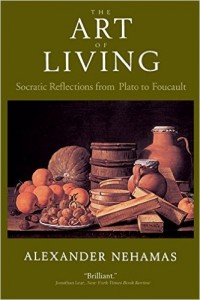The history of science, on one very common understanding, has three distinct stages. Science is said to have had its origins in Greek antiquity when philosophers first broke away from the myths of their forebears and sought rational explanations for natural phenomena. Science subsequently suffered a setback with the advent of Christianity, going into significant decline in the Middle Ages. But it then emerged triumphant with the scientific revolution of the seventeenth century when it finally broke away from religion and set out on its progressive path to the present.

Hands up if you’ve heard this story. OK, you can put them down. What’s wrong with this? Harrison continues later on in The Territories of Science and Religion:
The ancient Greeks had neither activities nor occupations that are directly equivalent to our terms “science” and “scientist.” Those who concerned themselves with the phenomena of nature were then known as “natural philosophers” and their activities fell under the rubric of philosophy. While it is certainly possible to project back modern notions of science onto the activities of the ancients, to do so uncritically does violence to the relations of natural philosophy with other aspects of ancient culture such as poetry, mythology, and religion.
Here’s why this would do violence to ancient philosophy:
Natural philosophy was an integral part of philosophy itself. However, this realization is only helpful if we understand that ancient philosophy has only the most tenuous connection with the subject matter now taught in university departments of philosophy (and particularly those that cleave to the analytic tradition [BAM! Glorified NYT crossword puzzles, I say –AR]). Philosophy then entailed the pursuit of wisdom or happiness: it was, to use the succinct expression of philosopher Pierre Hadot, “a way of life.” The doctrinal content of philosophy was subservient to the art of living.
Therefore, things that resembled modern science were not done by the ancients for their own sake. They were done for the sake of nurturing the good life, which also included logic, ethics, and religion. They were but means to an end. That end was virtue. Because virtue was the end, ancient philosophy was in some ways more subjective than modern philosophy. All of you junior theologians who are obsessed with objectivity will have to wait for the next installment of insights from The Territories of Science and Religion. Patience is a virtue.
UPDATE: The follow-up to this post is now up.
You might also want to read more about the equally amusing Ancient Creation Myth of Atheism or about philosophy as a way of life.
As you saw the mythical origins of science break down before your eyes, so I saw my 2nd car break down on the commute home from work last night. The only reason why I could write this is that I couldn’t make it to work. Please make my oil can rattle with change as I prepare for repairs and eventually the purchase of a new car. You can do so through the PayPal donation button on the right side of my blog homepage here.












